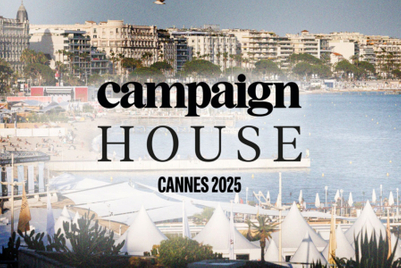
Under the bright lights of the Lumière Theatre at The Palais, Apple’s top marketing executive, Tor Myhren, delivered a stimulating defence of human creativity at the Cannes Lions International Festival of Creativity. “The good news is, AI is not going to kill advertising,” he declared. “The bad news is, AI is not going to save advertising. We’ve got to save ourselves.”
The core message, that the industry must take responsibility for shaping its future, is both sobering and inspiring. Far from dismissing artificial intelligence (AI), Myhren described it as “the most exciting creative tool we’ve seen in our lifetimes,” but he cautioned against surrendering too much to technology. “Machines are doing much more of the work for us. Algorithms are making many more decisions for us because they’re really smart and really logical, but logic isn’t always the path to human connection,” he said.
For Myhren, the core of advertising is about creating emotional resonance, the kind that algorithms simply cannot replicate. “To fall in love with your brand, it’s not enough for marketing to make you simply understand something. It has to make you feel something,” he explained. “And I think people are so much better at this than machines, I really do.”
While optimistic about human creativity, Myhren acknowledged the immense power of AI. “Don’t get me wrong,” he said. “AI is mind-blowing. It is revolutionary. It’s the most exciting creative tool we’ve seen in our lifetimes. It’ll be woven into every single aspect of what we do and every single aspect of the creative process, and it’ll be like a bionic arm for all of us. It’s going to radically disrupt every major industry, including this one, faster than any technology before, and it’s doing it already.”
Still, he warned against over-reliance on machines. “I am a shameless optimist, and I believe in human creativity,” Myhren said. “I don’t believe predictions that 95% of this industry will soon be done by plugging in your bank accounts and pushing a button.”
To drive his point home, Myhren referenced Apple’s own creative work. He screened the brand’s holiday ad for AirPods, which had muffled sound for the first 40 seconds of the film—an idea that no algorithms would have greenlit.
The ad was inspired by a deeply personal story: his 88-year-old father, who had forgotten his $5,000 hearing aids during a visit to California. Myhren used his AirPods and Apple’s hearing aid feature to help. “I put him in my closet to take the hearing test on the iPhone. Eight minutes later, he walked out using my AirPods, perfectly configured for his hearing loss,” Myhren recounted. Weeks later, when asked if he was still using them, his father replied: “They work just as well as my $5,000 hearing aids, but they look much cooler.”
Hearing loss is a silent epidemic, and the stigma around it, coupled with the clunky, outdated solutions, keeps many from seeking help. Myhren’s story became the heart of the AirPods 2 campaign, one which wasn’t about specs or features but about connections. The ad, intuitive and heartfelt, instantly resonated with the audience, leading to a spike in Google searches for “hearing aids”, and it became Apple’s most-watched holiday ad ever. Myhren reflected, “The data wouldn’t say that a four-year investment in making AirPods into hearing aids would drive ROI. And it certainly wouldn’t suggest starting a commercial with 40 seconds of muffled sound. But that’s what made it work.”
Privacy was also a theme.
Central to this, Myhren touched upon Apple’s privacy-focused, 'Flock,' which transformed handcrafted security cameras into eerie mechanical birds to symbolise the invasive nature of data breaches. The unsettling, human-crafted details of the campaign drove a point Myhren was keen to make: “These small details, the ones that make a story come alive, are traits that resist automation. It’s undeniably human.”
He concluded the presentation with optimism rooted in conviction: the best ideas still require human minds to evoke genuine emotions in others. He urged creatives to reclaim their imagination, not outsource it, because the future of advertising isn’t written in code, but in the choices we make. The industry might be “a bit battered, a bit scared,” but there is “no AI more capable of making us feel than the human mind,” he said, full of conviction.
Quoting Apple co-founder Steve Jobs, he stirred the audience with a CTA: “Go make something wonderful.”


.jpg&h=334&w=500&q=100&v=20250320&c=1)
.jpg&h=334&w=500&q=100&v=20250320&c=1)
.jpg&h=334&w=500&q=100&v=20250320&c=1)



.png&h=334&w=500&q=100&v=20250320&c=1)

.png&h=334&w=500&q=100&v=20250320&c=1)








